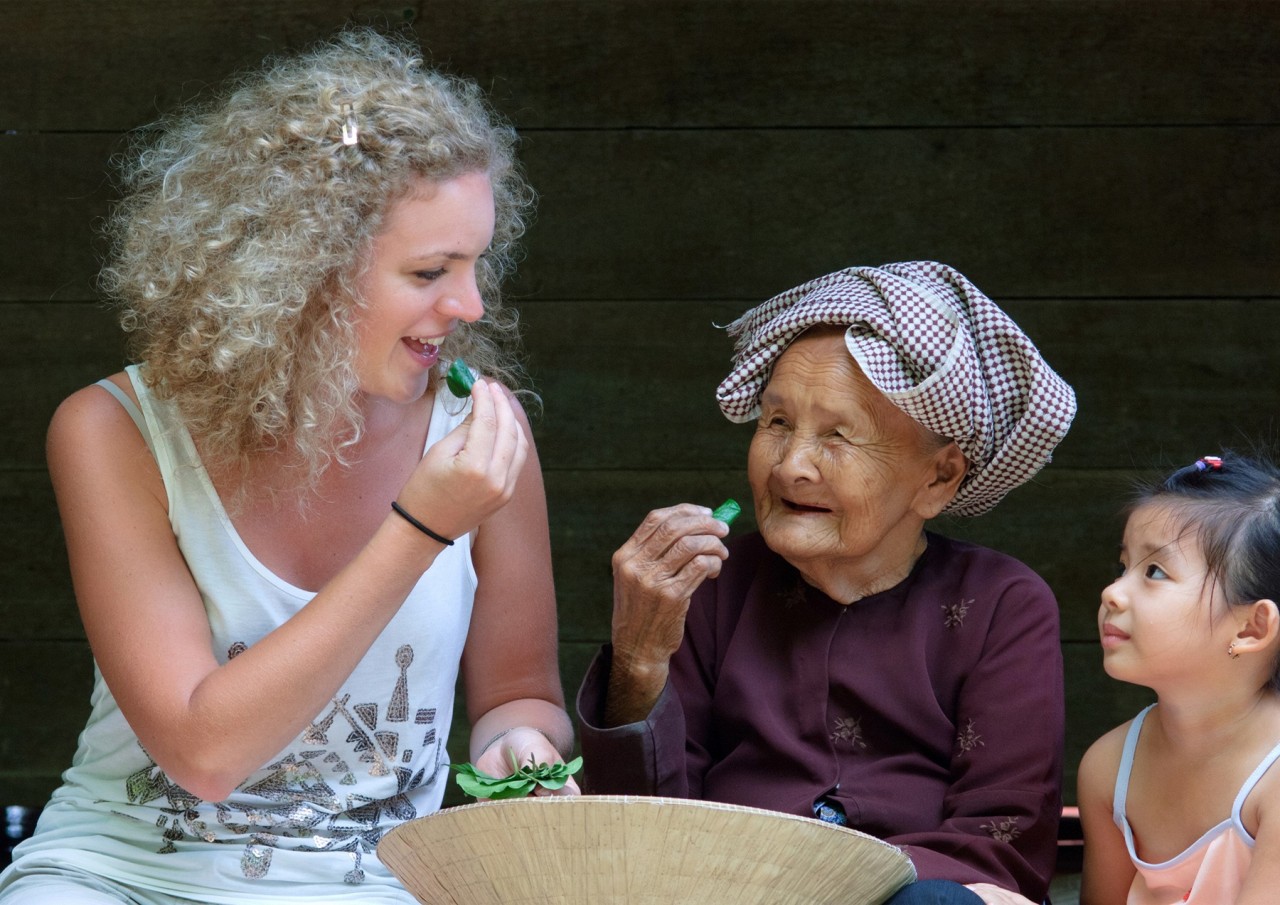|
|
Article 3:Valuable Lessons |
There are many valuable experiences in the practice of people-to-people diplomacy that we can and should inherit and promote in the current period.--------------------------------- |
|
Former Deputy Minister of Foreign Affairs, former President of the Viet Nam Union of Friendship Organizations Nguyen Phuong Nga. |
|
First, it is essential to thoroughly grasp Ho Chi Minh’s diplomatic thought and the Party’s viewpoint on combining national strength with the strength of the times, attaching importance to and promoting the role of international solidarity and people-to-people diplomacy. It is necessary to further enhance awareness throughout society of the role and significance of people-to-people diplomacy. In today’s complex international environment, where partners and adversaries are interwoven, both struggling and cooperating on the basis of interests, people-to-people diplomacy, with its own advantages of flexibility and adaptability, and its ability to reach out and establish broad relations with different actors, plays an increasingly important role. People-to-people diplomacy must fulfill its role as a bridge of friendship, actively conveying the message of a peace-loving Vietnam that respects international law, and making ever more important contributions to the common struggle of the world’s peoples for peace, cooperation, and sustainable development. In doing so, it helps build a positive social foundation that facilitates the promotion of friendly relations and cooperation with other countries, wins the support of people around the world, contributes to safeguarding the Fatherland from early on and from afar, and ensures the successful realization of the country’s strategic objectives, particularly the two centennial goals identified by the 13th National Party Congress. Second, it is necessary to ensure the Party’s comprehensive leadership over the process of strategic orientation and the organization of activities across all pillars of external relations, while also fostering the initiative and creativity of people-to-people diplomacy under the motto: “Proactive, flexible, creative, effective”, with the common goal of ensuring the highest interests of the nation. People-to-people diplomacy should continue to consolidate, expand, and improve the effectiveness of its network of international friends; promote relations of solidarity, friendship, and people-to-people cooperation in a deeper, more substantive, and more effective manner; and thereby sustain a peaceful and stable environment while mobilizing resources in capital, knowledge, and technology to achieve the country’s sustainable development goals. At the same time, it should help ensure that Vietnam’s cause of safeguarding, building, and developing the country becomes part of the broader cause of fostering and protecting peace, stability, and sustainable development worldwide. |
 |
Visitors explore the traditional cultural values of the Vietnamese people. (Photo: Pham Nhat Thuong)
| Third, close, smooth, and effective coordination is required among the pillars and channels of external relations, as well as among people-to-people organizations. Coordination must be strengthened at every stage, from research, policy advice, and policymaking to the implementation of guidelines and external activities on bilateral and multilateral diplomatic forums, across all fields: politics, economics, culture, international law, external communication, environment, human rights... This creates a synergistic strength for diplomacy in the new era, one that is “closely tied to the hearts of the people”, as directed by General Secretary To Lam, enabling external affairs to play an even more effective pioneering role in establishing and maintaining a peaceful, stable environment; contributing to safeguarding the Fatherland from early on and from afar; mobilizing external resources for development; and enhancing the country’s position and prestige. |
|
Denmark's Crown Prince Frederik is guided by an artisan in the art of Dong Ho painting during his official visit to Vietnam in November 2022 - a visit that was part of the celebration of the 50th anniversary of Denmark-Vietnam diplomatic relations. |
|
Fourth, attention and resources must be devoted to building the people-to-people diplomacy workforce. It is necessary to cultivate a team of people-to-people diplomacy officials with ethical qualities, political acumen, professional skills, strong digital and foreign language competence, and dynamism to adapt to a rapidly transforming world. The application of information technology and artificial intelligence should be strengthened, while organizing a wide range of activities such as people’s forums, cultural, artistic, and sports exchanges, charitable activities, and the production of communication materials. People-to-people diplomacy should harness the power of social media and digital communications with the participation of leaders, intellectuals, artists, celebrities, and other influential figures to enrich and enhance the appeal of people-to-people diplomacy activities. It is also important to mobilize the participation of people from all walks of life and overseas Vietnamese communities, attract young people, students, and especially those who have studied or worked abroad, to serve as the backbone of friendship organizations and build connections with international friends, so that every Vietnamese citizen becomes a “people’s ambassador.” |
|
Standing Vice President of the Viet Nam Peace and Development Foundation Tran Dac Loi (right) and Professor Mark Norrell of Indiana University (US). (Photo: Nhung Nguyen) |
|
In my view, we must continue to uphold the lesson of combining national strength with the strength of the times. This has been a consistent lesson throughout every stage of the Vietnamese revolution, and it is all the more necessary today for Vietnam integrating into an increasingly complex world. Another important lesson is to ensure the unity of the Vietnamese people’s movement in foreign relations and activities. Vietnamese people-to-people organizations must work under unified assignment and coordination when participating in international organizations and multilateral forums, and must absolutely avoid fragmentation, division, or pluralism. |